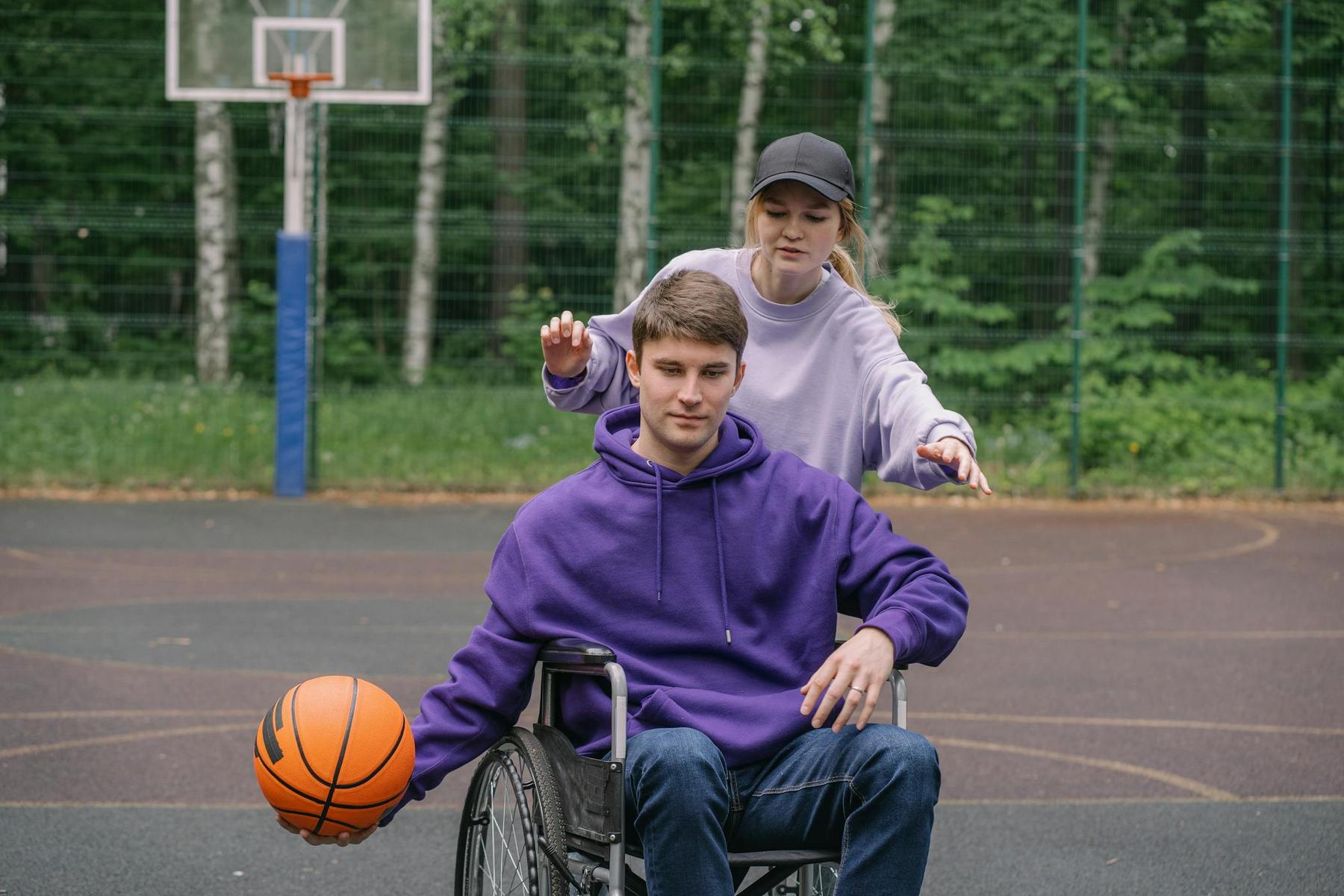When individuals with disabilities face mental health challenges, the journey to finding appropriate support can feel overwhelming and fragmented. The intersection of mental health conditions and disability creates unique complexities that require specialised, coordinated care approaches. For families and individuals navigating this landscape in Brisbane and surrounding regions like Cairns, understanding how integrated support systems work becomes crucial for achieving meaningful outcomes and improved quality of life.
The integration of mental health and disability support services represents more than just combining different types of care – it embodies a holistic approach that recognises the interconnected nature of physical, cognitive, and psychological wellbeing. This comprehensive approach ensures that individuals receive seamless, person-centred support that addresses their complete spectrum of needs rather than treating each aspect in isolation.
What Does Mental Health and Disability Support Integration Actually Mean?
Mental health and disability support integration in Brisbane refers to the coordinated delivery of services that address both psychological wellbeing and disability-related needs simultaneously. This approach recognises that mental health conditions can be both a primary disability and a secondary condition that develops alongside physical or intellectual disabilities.
The integration process involves multiple stakeholders working collaboratively, including support workers, mental health professionals, healthcare providers, and allied health teams. Rather than requiring individuals to navigate separate systems for different aspects of their care, integrated services provide a unified support network that communicates effectively and shares common goals.
Under the National Disability Insurance Scheme (NDIS), this integration becomes particularly significant for participants with psychosocial disabilities – conditions where mental health impacts a person’s ability to participate fully in society. The NDIS framework supports this integrated approach through funding mechanisms that allow for comprehensive support packages addressing multiple needs simultaneously.
Key components of effective integration include:
- Collaborative care planning that involves all relevant professionals
- Shared assessment processes that reduce duplication and stress
- Coordinated service delivery across different support areas
- Regular communication between all team members
- Person-centred approaches that respect individual preferences and goals
How Does Integrated Support Improve Outcomes for Participants?
The benefits of mental health and disability support integration in Brisbane extend far beyond administrative convenience. Research consistently demonstrates that coordinated care approaches lead to improved participant outcomes across multiple domains of life functioning.
Integrated support reduces the burden on individuals and families by eliminating the need to repeatedly explain their circumstances to different service providers. This streamlined approach minimises trauma re-exposure and creates a more comfortable environment for receiving support. Participants report feeling more understood and supported when their care team communicates effectively and works towards shared objectives.
From a practical perspective, integration enables more responsive and flexible support delivery. When mental health symptoms fluctuate, integrated teams can quickly adjust disability support services to maintain stability and prevent crisis situations. This proactive approach often prevents hospitalisations and reduces the need for crisis interventions.
Evidence-based benefits include:
- Reduced service fragmentation leading to better continuity of care
- Improved communication between different support providers
- Enhanced crisis prevention through coordinated monitoring
- Greater participant satisfaction with their overall support experience
- More efficient use of resources across the support network
| Integration Component | Traditional Approach | Integrated Approach | Participant Benefit |
|---|---|---|---|
| Assessment Process | Multiple separate assessments | Coordinated comprehensive assessment | Reduced stress and duplication |
| Care Planning | Separate plans for each service | Unified person-centred plan | Clear, consistent goals |
| Communication | Limited between providers | Regular team communication | Responsive, coordinated support |
| Crisis Response | Separate crisis protocols | Integrated crisis management | Faster, more effective responses |
| Progress Monitoring | Individual service reviews | Collaborative progress reviews | Comprehensive outcome tracking |
What Role Do Support Workers Play in Integrated Mental Health Care?
Support workers form the backbone of integrated mental health and disability support services, serving as the consistent presence in participants’ daily lives. Their role extends beyond traditional disability support to encompass mental health awareness, early intervention, and collaborative care coordination.
Modern support workers receive specialised training in mental health recognition and response, enabling them to identify changes in a participant’s mental state and respond appropriately. This training includes understanding trauma-informed care principles, recognising signs of mental health deterioration, and implementing de-escalation techniques when necessary.
The support worker’s unique position allows them to observe participants in their natural environments over extended periods, providing valuable insights to the broader care team. They can identify patterns, triggers, and early warning signs that might not be apparent during brief clinical consultations, making them essential contributors to effective integrated care planning.
Contemporary support worker responsibilities include:
- Daily living support while monitoring mental health indicators
- Implementation of therapeutic strategies developed by mental health professionals
- Communication facilitation between participants and their care team
- Crisis recognition and initial response according to established protocols
- Data collection and reporting on participant progress and challenges
How Can Families Navigate the Integrated Support System in Brisbane?
Families seeking integrated mental health and disability support in Brisbane often face initial confusion about where to begin and how to access appropriate services. The key to successful navigation lies in understanding the available pathways and building relationships with knowledgeable support coordinators who can guide the process.
The journey typically begins with comprehensive assessment processes that evaluate both disability-related needs and mental health considerations. These assessments should involve input from relevant professionals, family members, and the individual themselves to ensure all perspectives are captured and considered in the support planning process.
Support coordination plays a crucial role in connecting families with appropriate services and ensuring effective integration. Experienced coordinators understand the local service landscape in Brisbane and can identify providers who specialise in integrated approaches. They also help families understand funding options under the NDIS and how to maximise available resources.
Essential steps for families include:
- Engaging with qualified support coordinators who understand integrated approaches
- Participating actively in assessment processes to ensure comprehensive understanding
- Building relationships with service providers who demonstrate collaborative approaches
- Maintaining regular communication with all team members
- Advocating for their family member’s needs throughout the support journey
What Training and Qualifications Ensure Quality Integrated Support?
The quality of integrated mental health and disability support depends heavily on the training and qualifications of the professionals delivering services. In Brisbane, leading support providers invest significantly in ensuring their teams possess the knowledge and skills necessary for effective integrated care delivery.
Mental health literacy has become a fundamental requirement for disability support workers, encompassing understanding of common mental health conditions, their symptoms, and appropriate responses. This training goes beyond basic awareness to include practical skills in supportive communication, crisis de-escalation, and trauma-informed care principles.
Professional development in integrated care approaches ensures that support workers understand how to work effectively within multidisciplinary teams. This includes learning about different professional roles, communication protocols, and collaborative care planning processes that ensure seamless service delivery.
Critical training areas include:
- Mental Health First Aid certification for immediate response capabilities
- Trauma-informed care principles to avoid re-traumatisation
- Person-centred planning methodologies that respect individual preferences
- Crisis intervention techniques for managing acute situations
- Cultural competency training to serve diverse community needs
Ongoing professional development ensures that support teams stay current with best practices and emerging research in integrated care approaches. This commitment to continuous learning reflects the professional standards expected in contemporary disability support services.
Building Stronger Communities Through Integrated Support
The integration of mental health and disability support services in Brisbane represents a fundamental shift towards more holistic, person-centred care approaches. This evolution recognises that effective support cannot compartmentalise different aspects of a person’s wellbeing but must address the individual as a complete human being with interconnected needs.
The success of integrated approaches depends on the commitment of service providers to invest in appropriate training, develop collaborative relationships, and maintain focus on participant outcomes rather than administrative convenience. When implemented effectively, these approaches create stronger, more resilient communities where individuals with disabilities can thrive.
As the disability support sector continues to evolve, the emphasis on integration will likely increase, driven by evidence of improved outcomes and participant satisfaction. Brisbane’s position as a major regional centre provides access to diverse, specialised services that can work together to deliver truly integrated support experiences.
The journey towards fully integrated mental health and disability support requires ongoing commitment from all stakeholders – participants, families, support workers, and service providers. Through collaborative effort and shared vision, the Brisbane region can continue developing as a leader in innovative, integrated support delivery that empowers individuals to achieve their goals and live fulfilling lives.
Have questions? Need support? Reach out to us here at Advanced Disability Management.
What is the difference between traditional disability support and integrated mental health and disability support?
Integrated support combines mental health awareness and intervention strategies with traditional disability support services. Rather than treating mental health and disability needs separately, integrated approaches recognise their interconnection and provide coordinated care that addresses both simultaneously. This results in more comprehensive, effective support that reduces fragmentation and improves outcomes.
How can I find providers in Brisbane who offer integrated mental health and disability support services?
Start by contacting experienced support coordinators who understand the local Brisbane service landscape and specialise in integrated approaches. Look for providers who demonstrate collaboration with mental health professionals, offer staff training in mental health awareness, and can provide examples of successful integrated support experiences. The NDIS provider portal can also help identify registered providers with relevant specialisations.
What should I expect during the assessment process for integrated support services?
Comprehensive assessments for integrated support typically involve multiple professionals and cover both disability-related needs and mental health considerations. The process should include input from relevant healthcare providers, mental health professionals, family members, and the individual receiving support. Expect discussions about daily living needs, mental health history, current challenges, goals, and preferences for support delivery.
How do integrated support teams communicate and coordinate care?
Effective integrated teams establish clear communication protocols that include regular team meetings, shared documentation systems, and defined roles for each team member. They typically use person-centred planning approaches that involve the participant in all major decisions and maintain consistent communication channels between support workers, mental health professionals, and other relevant providers.
What funding options are available through the NDIS for integrated mental health and disability support?
The NDIS provides funding for psychosocial supports through various budget categories, including Core Supports for daily activities, Capacity Building for skill development, and Capital Supports for assistive technologies. Participants with psychosocial disabilities can access funding for support coordination, personal care, community participation, and therapeutic supports that address both mental health and disability-related needs. Working with experienced plan managers or support coordinators helps maximise available funding options.



